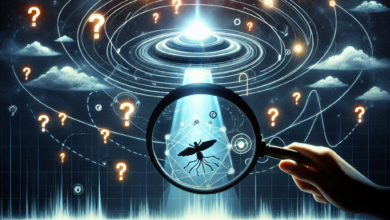Understanding the ‘Container’ Concept for the Soul: What It Means and Why It’s Confusing
Exploring the Concept of the Soul: Are We Just "Containers" for It?
In recent discussions about spirituality and existence, the notion of humans as "soul containers" has come to the forefront, creating a spirited debate among believers and skeptics alike. While many may find this perspective surprising, it’s worth considering how long this idea has been part of our understanding of identity, purpose, and connection to something greater.
Growing up in a traditional religious setting often imbues individuals with fundamental beliefs about the soul. For those raised in faith, the soul is viewed as an essential component of human life, a distinct part that transcends our physical selves. It’s described as the essence of who we are—the true "us" separate from mere flesh and bone. Despite stepping away from organized religion, the profound impact of these beliefs lingers, suggesting that many carry these concepts into their understanding of the world today.
In many faith traditions, especially within Christianity, the health of the soul is thought to rely on adherence to moral principles derived from sacred texts. Acts of faith—like prayer, confession, and observance of commandments—are seen as means to nurture and protect the soul. The belief is clear: neglect or wrongdoing can potentially endanger our soul’s integrity, leading to dire consequences.
The conversation takes an interesting turn when we consider how external entities, like unidentified human intelligence (NHI) or unidentified aerial phenomena (UAP), might view humanity. The idea that these entities might see humans primarily as “soul containers” raises questions about our existence and the connections we forge. It sparks curiosity—why is this concept so shocking to some, when it aligns closely with longstanding perspectives on human spiritual essence?
Given the discussions fueled by various interpretations of spirituality and existence, it would be valuable to hear diverse thoughts on this topic. While traditional faiths emphasize relationships with God and the importance of spiritual laws, others find their grounding in nature and the world around them. As one reader aptly puts it, "Mother Earth is my religion, and nature is my church," suggesting a profound and intrinsic bond with the planet that many share.
As these discussions unfold, it’s vital to engage deeply with the ideas that shape our understanding of the soul. Are we merely vessels for an unseen essence? Or is there more to our existence than being mere containers? As we explore these questions, we invite everyone to share their reflections and insights on the profound and eternal mystery of the human soul.




